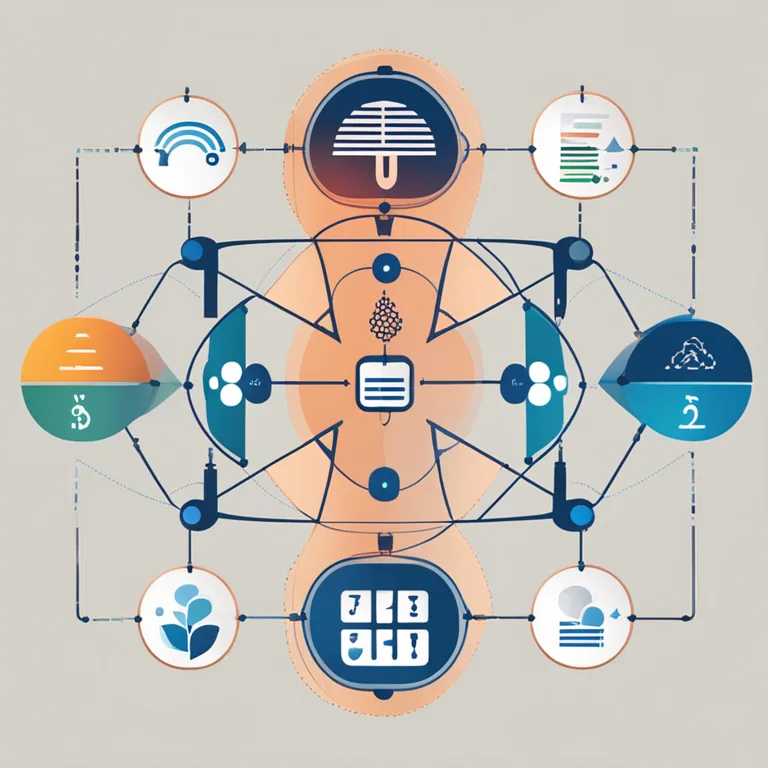
The Basis of Biorhythms: An Insightful Guide
Discover what biorhythms are and the scientific principles they are based on in this comprehensive overview.
article by Adrian Wallace
The Concept of Biorhythms
Biorhythms are a concept that suggests humans operate according to natural, cyclical patterns that influence our physical, emotional, and intellectual states. Originating in the early 20th century, the theory posits that from the moment of birth, individuals experience rhythmic cycles that affect their abilities and behavior. Over the decades, these rhythms have been categorized into three primary types: physical, emotional, and intellectual biorhythms, each with its own distinct duration. As we examine the fundamentals of these cycles, it is crucial to approach the concept with both open-minded curiosity and a critical lens.

Physical Biorhythm Cycles
The physical biorhythm, with a cycle of approximately 23 days, is believed to influence physical factors such as strength, coordination, and well-being. Advocates argue that being in tune with one's physical cycle can lead to more effective training schedules for athletes and optimal times for surgery due to purported peaks in physical recovery and regeneration. Though intriguing, it is worth noting that the empirical evidence supporting these cycles remains a topic of debate within the scientific community.

Emotional Biorhythm Cycles
Emotional biorhythms allegedly follow a 28-day cycle that parallels the lunar month. Proponents of biorhythms suggest that understanding one's emotional cycle can be advantageous in planning events where emotional stability and expression are paramount. They claim that an awareness of emotional highs and lows could potentially lead to better mental health management and relationship dynamics. Similarly, the scientific validation of these cycles is still under scrutiny but continues to be a point of fascination for many.

Intellectual Biorhythm Cycles
The intellectual biorhythm is said to complete its cycle every 33 days and is associated with mental acuity, analytical abilities, and memory functions. By tracking this cycle, it is posited that one can optimize learning and problem-solving tasks. Educational planning and work-related activities can, in theory, be aligned with phases of heightened intellectual capacity, though, as with physical and emotional biorhythms, the scientific jury is still out on this phenomenon.

Scientific Views on Biorhythms
The scientific community has yet to reach a consensus on the validity of biorhythmic cycles. Critics point to a lack of rigorous empirical evidence and reproducible results as the main argument against the theory. However, interest in chronobiology – the study of periodic phenomena in living organisms – has lent some credence to the idea that biological rhythms do exist. The circadian rhythm, for example, is a well-documented cycle of sleep and wakefulness that operates on a roughly 24-hour period, demonstrating that the body does indeed have its internal clock.
Modern Approach to Biorhythms
In the modern digital age, the intersection of technology and biorhythms has given rise to software and apps designed to help users track their cycles. While these tools are largely geared toward those with a holistic or new-age orientation, they can serve as interesting self-experimentation devices for the curious. With the increasing interest in personal well-being and self-optimization, biorhythms may hold a place in the broader conversation about holistic health, provided they are discussed in conjunction with established medical advice and research.
Conclusion
Ultimately, while the theory of biorhythms presents an appealing framework for personal rhythm tracking, substantiated scientific backing is essential for it to gain widespread acceptance. The discussion surrounding biorhythms reflects a broader human interest in understanding the ebbs and flows of our physical, emotional, and intellectual capacities. As we continue on the path of discovery, it is important to maintain both an open mind and a critical evaluation of the evidence presented.
Published: 12/28/2023
Modified: 12/28/2023
More predictions
Come back here soon to learn more about yourself and your future


The Accuracy of Biorhythms: A Myth or Science?
Delve into the debate on the accuracy of biorhythms and discover whether they hold any scientific validity.


Biorhythm Compatibility and Birth Dates: The Connection Revealed
Discover how biorhythm compatibility based on birth dates can influence personal connections and relationship dynamics.